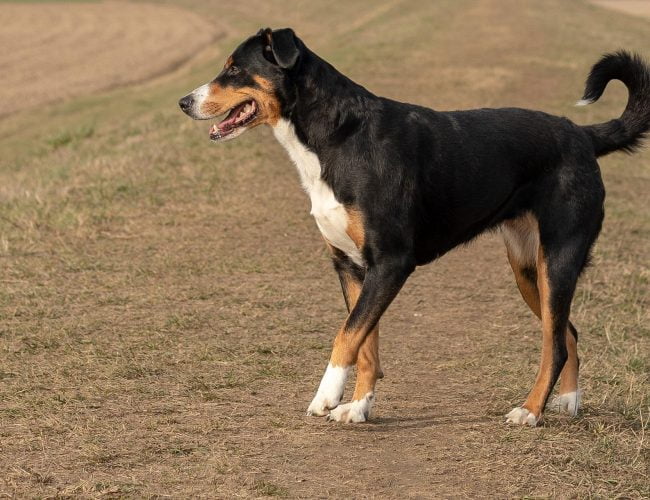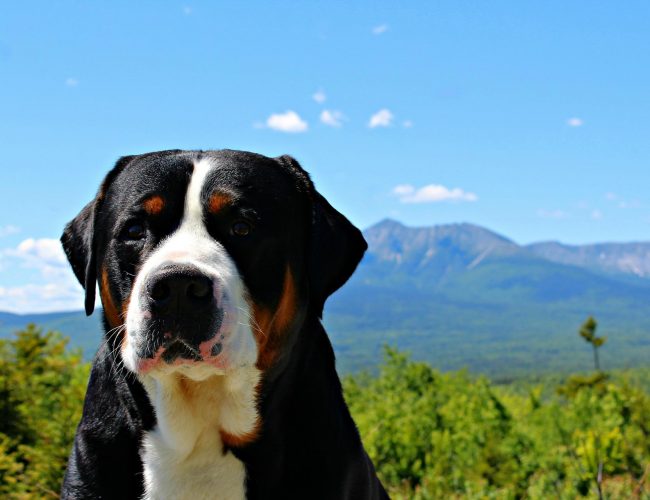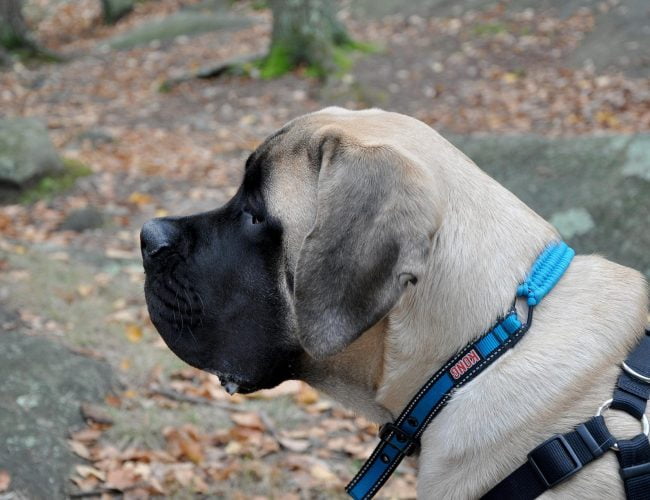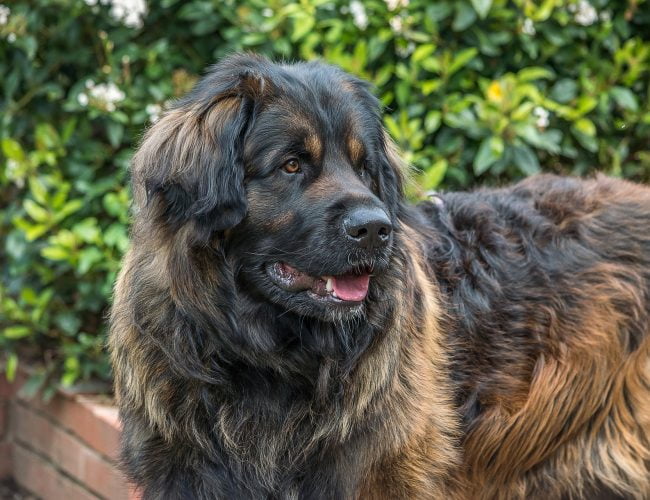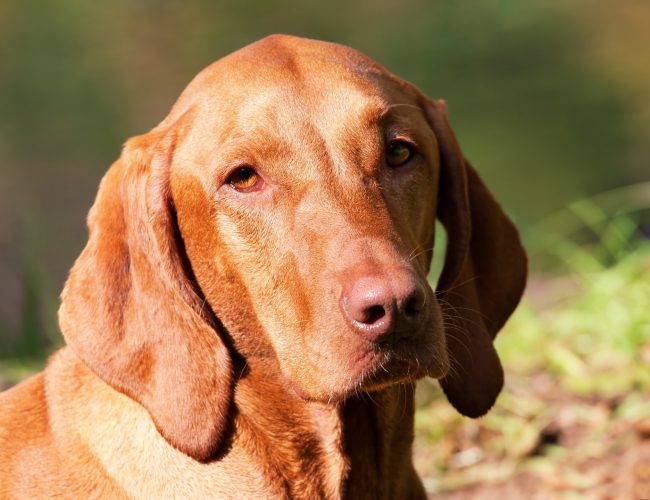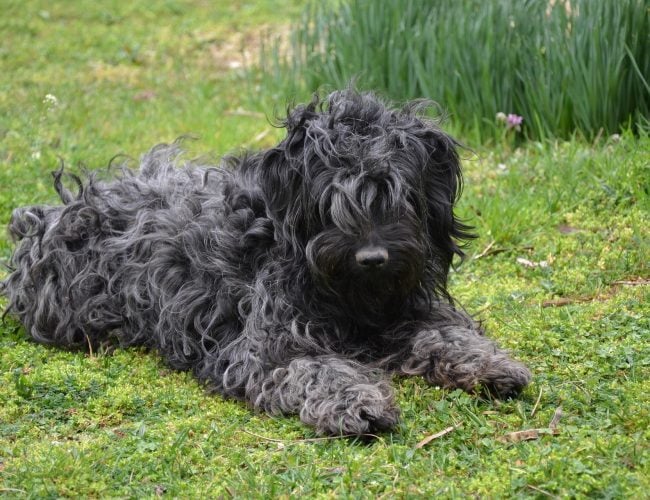

Bernese Mountain Dog
Breed Group: Working Group
Size Group: Large Dog Breeds
Origin: Switzerland
Height: 25”-27.5” (male) 23”-26” (female)
Weight: 80-115lbs (male) 70-95lbs (female)
Color: Black rust & white, Black tan & white
Lifespan: 7-10 years
Temperament: Confident, alert, gentle, easy-going
Overview
Bernese Mountain Dogs made their start herding and guarding the cows that were at least partly responsible for making Switzerland’s famous cheeses and chocolates. Some may call them superheroes, we certainly do. At the end of a hard day working the farm, Berners were wonderfully gentle companions. They are known for their luscious tri-colored coat and massive yet graceful frame.
Berners are famously adorable, calm, loving and protective. This breed makes wonderful companions for children and other animals. They just need to be around their people. These pups are prone to separation anxiety if left alone for too long. Be sure to get a jump start on training your tiny pup, before you know it you will have a colossal giant that either is or isn’t going to listen to you.
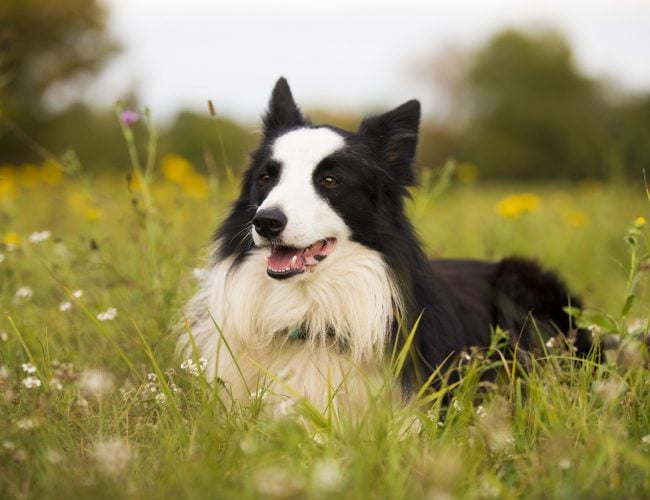
Smartest Dog Breeds
- If you need someone to take the SATs for you, we have you covered
- Intelligence is something you're born with. And these ones were.
EXPLORE SMARTEST DOG BREEDS
Celebrity Owners
Goldie Hawn & Kurt Russel, Hillary Duff, Jasmine Harman, Kate Middleton, Sarah Michelle Gellar, Selena Gomez, Sophie Monk, Tim Tebow
Fun Facts
Berners love to make their families laugh. So much so that if they discover a particular act elicits a laugh, they will repeat the action again and again.
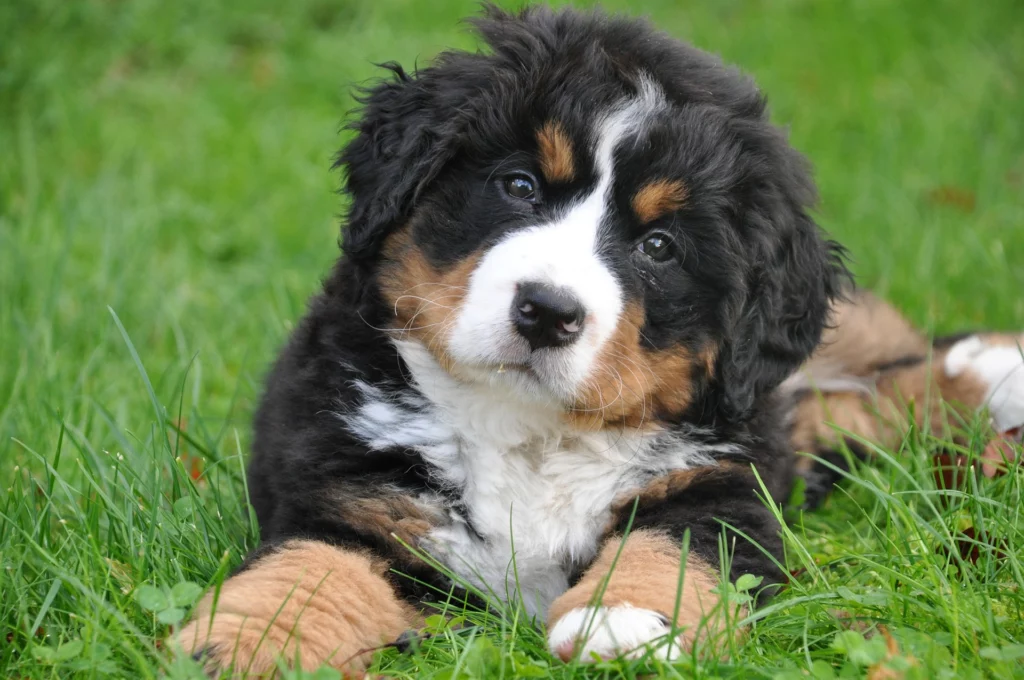
Health
Berners are generally very healthy pups. Some health conditions to be aware of include allergies, histiocytosis, aseptic meningitis, bloat, lymphoma, cancer, cataracts, degenerative myelopathy, colitis, inflammatory bowel disease, elbow dysplasia, entropion, ectropion, hip dysplasia, hypothyroidism, osteochondritis dissecans, panosteitis, progressive retinal atrophy, subaortic stenosis, obesity, dental disease, epilepsy, cerebellar abiotrophy, color dilution alopecia, von Willebrand’s disease.
While you always hope your pet will live a long and healthy life, it is always a good idea to invest in pet health insurance.
Keeping your dog’s mouth clean and problem free goes a long way to your pup’s overall health. Dental hygiene can be the cause or can be the byproduct of other serious health issues.
Visual inspections can be performed to keep track of the signs of potentially waning oral health. These signs can be anything from bad breath to abnormal chewing to loss of appetite.
Keeping ahead of these warning signs can pay dividends. A preventative approach can delay and stop many of the common dental problems from arising.
Oral health can be tackled in five basic steps:
- Brushing your dog’s teeth to prevent an undesirable buildup of plaque
- Feed your dog a diet where the high quality dog food has dental benefits
- Regularly give your dog dental toys and treats
- Use mouthwash, to help where brushing misses
- At the sign of any abnormalities, consult a vet. You can even do it virtually, from the convenience of your home.
Dogs are just like humans in that they can experience anxiety. The degree to which they are susceptible to anxiety and how they deal with anxiety is breed specific. Left unchecked, initial signs of anxiety could give way to an anxiety disorder. The symptoms of anxiety disorders can lead to a myriad of behavior issues.
Knowing the signs and symptoms will best equip you to keep ahead of it and to nip it in the bud at the earliest signs. There are options available to help with anxiety.
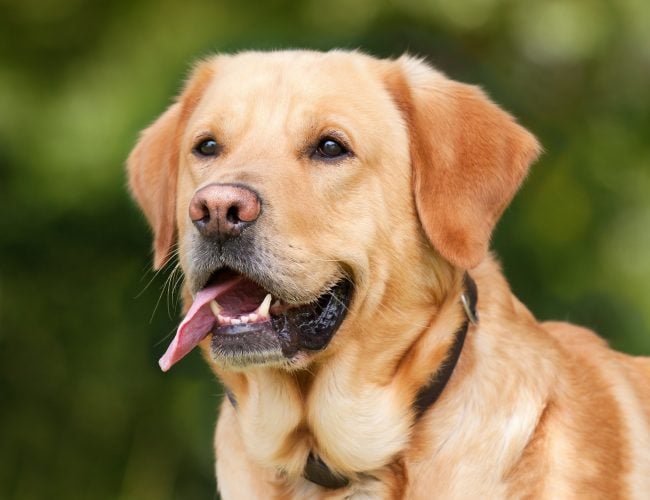
Family Dog Breeds
- They have the right patience and temperament for your family
- Vigilant and loyal, these dogs will protect their own
EXPLORE FAMILY DOG BREEDS
Grooming
Berners’ lush double coat sheds profusely. Expect to brush the coat at least once a week to remove debris, tangles and matts. Do not allow matts to accumulate, they can cause skin irritation and hair loss. When you encounter matts, gently work through them with a comb. They will go through two seasonal sheds, where brushing daily will help to contain the hair around your home. This breed does not need frequent washing. Plan on bathing your pup every 6-8 weeks or as necessary. Trim your pup’s nails regularly. Keep your pup’s ears and eyes clean and clear of debris. This breed is prone to dental issues, aim to brush your pup’s teeth daily.
Cost
$2,000 – $3,000
Exercise
Berners need between 30-60 minutes of activity per day. They love to draft, so if you have little children your pup will enjoy pulling them in a cart. Games of fetch, walks, and hikes are all great activities for your pup. Remember their profuse coat can cause overheating in extreme heat. Do not leave your pup alone for long periods of time.
Nutrition
There are two major concerns with nutrition and Berners. First the tendency towards obesity. Be mindful to avoid over feeding your pup this includes too many treats and allowing table scraps. Obesity opens the door to many other health issues that will shorten your pup’s lifespan. The second concern is bloat. This condition is a sudden and life-threatening situation when your pup’s stomach fills to quickly and then flips inside the torso. You can help avoid this situation by feeding your pup over two meals and using slow feeding bowls. Your full-sized Berner will eat somewhere around 2.5 cups of food. The exact requirements of your pup will depend on age and activity level. If you are ever concerned about your pup’s weight, consult a vet.
We’ve taken a look at some premium dog foods, high in nutrition here.

Hypoallergenic Dog Breeds
- Low shedding dogs that will attack the allergies less
- These dogs come in all shapes, sizes and temperaments
EXPLORE HYPOALLERGENIC DOG BREEDS
Training
As with all pups, early socialization with humans and other pups is essential. Start training your pup as early as possible. It is much easier to control a tiny puppy, than it is to control a full grown Berner. These pups are eager to please and respond well to positive training methods. Never use harsh reprimands with your pup as he will shut down. Many owners have had success with clicker training.
Proper training is essential to ensuring the safety of your dog and those around you. Having your dog come when they should, and in general having them listen is something you want to address early in your pup’s life, as it will pay dividends down the line. There are many tried and true training programs to accomplish this training – faster and better than you might think!
Unless you’re living on a farm, or have the space, a yipping dog, or one that barks all day when you are gone could be an issue with the neighbors and/or landlord. Historically, dogs would bark to communicate with the rest of the pack when hunting and bark as a warning shot to predators eyeing up their flock. Barking is deep rooted in dogs and manifests itself in many ways and for a variety of reasons.
Just like any habit or instinct, there are effective ways you can train this issue away.

Cute Dog Breeds
- I mean, come on. These dogs will have you wanting one.
- Guaranteed to make you instagram famous (or at least your pup!)
EXPLORE CUTE DOG BREEDS
Supplements
A solid Glucosamine Supplement for hips and joints will go a long way to helping your furry friend.
Other helpful supplements include full-spectrum hemp oil or CBD oil. Fish oil skin and coat supplement.
Ensuring a comprehensive preventative vitamin and mineral plan is essential to keeping your dog healthy. Truth is, there are vitamins and minerals that your dog needs, but doesn’t produce naturally. While many of these vitamins and minerals can be found in your dog’s current diet and dog food, the question becomes, are there enough vitamins to ensure they aren’t deficient.
Poor nutrition can lead to some of the most common health issues, such as weak joints, compromised immunity, increased allergies, and low energy.
Vitamins play a vital role in your pet’s health and overall life expectancy. Here are some multivitamin and joint relief options.
As regulations around marijuana have eased, the emergence of CBD oils for humans and dogs have sprung up.
Just to begin to dispel the negative stigma, CBD extract comes from Hemp, marijuana’s cousin. Unlike its cousin, there are no psychoactive qualities in CBD oil. An emerging number of clinical and institutional studies have shown the wide variety of healing qualities in CBD, including pain management, and the containment of seizures and epileptic episodes.
Explore this remedy further to see all the health benefits that have transformed the lives of so many dogs to date.
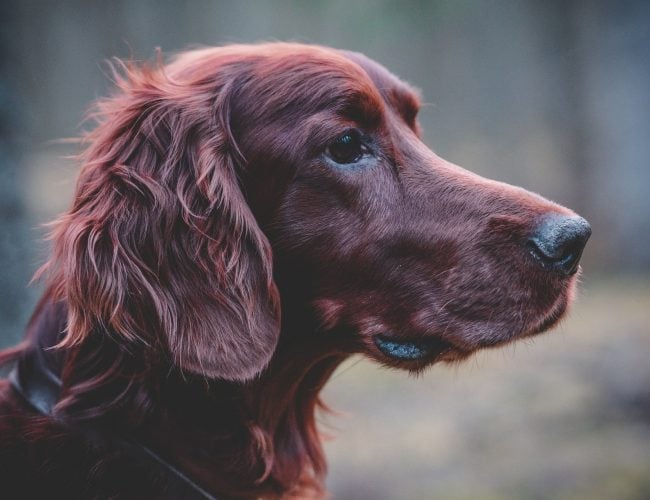
Hunting Dog Breeds
- Energy and a willingness to get the job done, these dogs love outside
- Their traits and unique skillsets have them separated from the pack
EXPLORE HUNTING DOG BREEDS
The Good
Very loving – great with family and animals
Easy to train
The "Ruff"
Heavy shedder
Separation anxiety
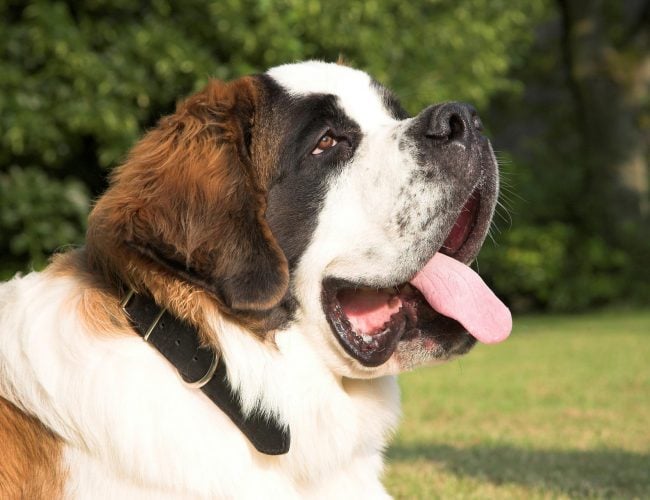
Companion Breeds
- Their loving and caring spirit makes them great compadres
- A passion for giving back to their owner is in their DNA
EXPLORE COMPANION DOG BREEDS
All Dog Breeds Lists
- From family to hairless to sled dogs, we have you covered
- All breeds from the ones you know, to the ones you don't
EXPLORE DOG BREEDS






